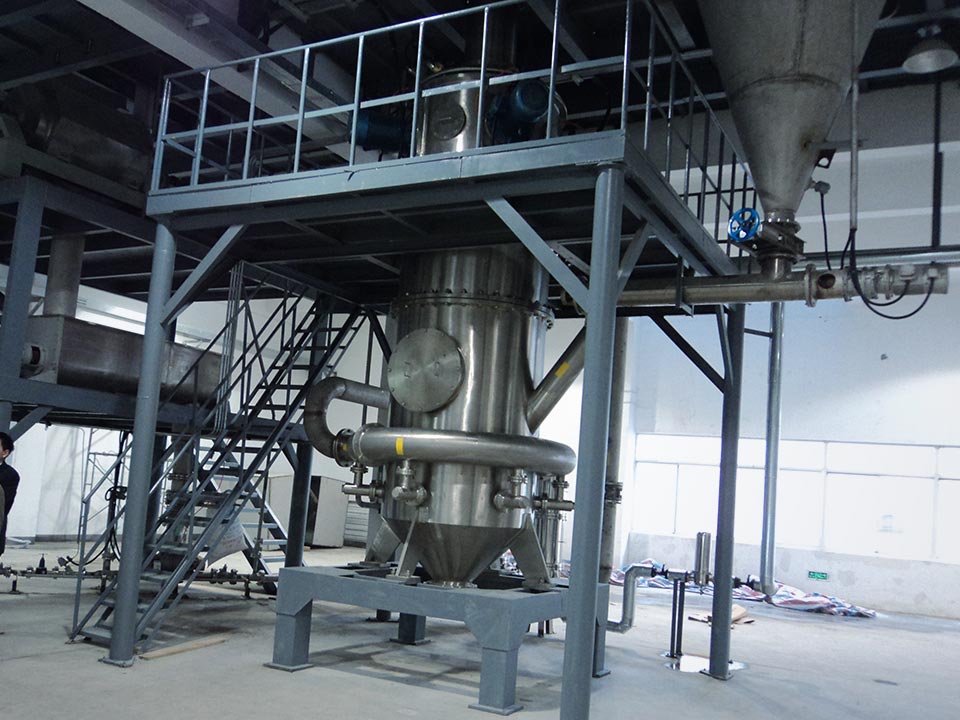What are the factors that affect the grinding efficiency of jet mills?
Jet mill is a kind of equipment that uses high-speed air flow energy (300~500m/s) or superheated steam (300~400℃) to make powders collide, collide, and rub against each other to make them grind. The nozzle sprays high-pressure air or high-pressure hot air, and then rapidly expands to form a high-speed airflow. Due to the large velocity gradient near the nozzle, most of the grinding occurs near the nozzle. The collision frequency between particles in the grinding chamber is much higher than the collision frequency between particles and the wall, that is, the main function of the jet mill is the collision between particles.

The control of the final particle size of the product by the jet mill mainly depends on the raw material particle size, crushing pressure, feeding pressure, feeding speed and other parameters. The logical relationship between the pneumatic grinding device and these parameters is specifically: the smaller the particle size of the raw material, the higher the grinding efficiency, on the contrary, the larger the particle size, the lower the grinding effect. When the grinding pressure and feed pressure are constant, reducing the feed rate will make the product finer, and increasing the feed rate will make the product coarser. When the feed rate is constant, increase the grinding pressure, the product size will become finer, and reduce the grinding pressure, the product will become coarser.
Therefore, particle size control is achieved by adjusting the parameters in the grinding process of the jet mill to achieve different pulverization finenesses. Before pulverization, the relationship between the feeding speed and pressure must be determined first, and then the appropriate pulverization parameters must be determined to meet different requirements. Granularity requirements.
The advantage of the jet mill is that it grinds no pollutants. After grinding, the compressed supersonic airflow speed decreases and the volume increases. It is an endothermic process and has a cooling effect on the material. It is especially suitable for ultrafine grinding. The jet mill uses supersonic airflow to accelerate the speed of particles, collide with each other or grind materials to achieve the grinding effect.
In order to increase the collision speed, a number of evenly distributed sub-nozzles are set around the main nozzle to accelerate the material particles around the main nozzle into the central area of the main stream. The feed nozzle is located in the center of the main nozzle, and the fluidized particles can be directly sucked into the center of the main nozzle to achieve a higher collision velocity.
At present, the jet milling equipment used in industry includes: flat plate, circulating tube, target type, convection type, fluidized bed type.
Influencing factors of the grinding effect of jet mill
Research results show that the grinding effect of the jet mill is affected by factors such as gas-solid ratio, feed particle size, working fluid temperature, and working fluid pressure.
- Gas-solid ratio
If the gas-solid ratio is too small, the gas flow energy will be insufficient, which will affect the fineness of the product; on the contrary, if the gas-solid ratio is too large, it will not only waste energy, but also deteriorate the dispersion performance of certain materials.
- Feed size
When grinding hard materials, the particle size requirements of the feed materials are also stricter. For titanium powder, the crushed calcined material should be controlled at 100~200 mesh; the surface treatment material grinding is generally 40~70 mesh, not more than 2~5 mesh.
- Working fluid temperature
At high temperatures, the gas flow rate in the working fluid increases. Take air as an example. The critical velocity at room temperature is 320m/s. When the temperature rises to 480℃, the critical velocity can be increased to 500m/s, and the kinetic energy is also increased by 150%. The effect is favorable.
- Pressure of work material
The working hydraulic pressure is the main parameter that produces the jet flow rate and affects the grinding fineness. Generally speaking, the higher the working pressure and the faster the working speed, the greater the kinetic energy, which mainly depends on the grindability and fineness requirements of the material.
- Grinding aids
During the grinding process of the jet mill, if a suitable grinding aid is added, not only the grinding efficiency can be improved, but also the dispersibility of the product in the medium can be improved.
